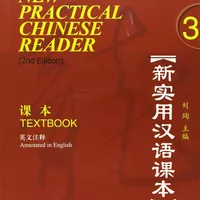Lesson 30 - Dialog 1
|Dialogue 1
|对话
Lektion 30 - Dialog 1
Lesson 30 - Dialog 1
Leçon 30 - Dialogue 1
Lezione 30 - Dialogo 1
Lekcja 30 - Dialog 1
Урок 30 - Диалог 1
Lesson 30 - Dialog 1
丁力波 : 现在 八点半 了 , 街上 还 这么 热闹 !
Ding Libo||||dans la rue|||animée
Ding Libo||8:30||on the street||so|lively
Ding Libo: It's half past eight, and the street is still so lively!
宋华 : 这儿 的 人 吃完 晚饭 都 喜欢 出来 活动 活动 。
Song Hua||||||||||
Song Hua||||finish eating|||||exercise|exercise
Song Hua: People here like to come out for activities after dinner.
你 看 , 人们 又 唱 又 跳 , 玩儿 得 真 高兴 。
||||chantent||||||
||||sing||jump|playing||really|happy
You see, people sang and danced and had a great time.
马 大为 : 那儿 来 了 很多 人 , 一边 跳舞 , 一边 还 敲锣打鼓 。
||||||||danser|||Tambour et gong
Ma|Ma Dawei|there|||||||||beating gongs and drums
Ma Dawei: A lot of people came there, dancing and beating drums and gongs.
他们 在 跳 什么 舞 ?
||dancing||dance
What dance are they doing?
宋华 : 他们 在 扭秧歌 呢 。
|||dansent Yangge|
|||dancing yangko|
Song Hua: They are dancing the yangge.
马 大为 : 扭秧歌 ?
||twist yangge
Ma Dawei: Twisting Yangko?
我 听说 过 。
|J'ai entendu|
|heard|past tense marker
I've heard of it.
宋华 : 这是 中国 北方 的 一种 民间舞蹈 , 叫做 秧歌 舞 。
||Chine||||danse folklorique|appelé|danse du riz|danse populaire
|||North|||folk dance|called|yangge|yangge
Song Hua: This is a folk dance in northern China called Yangge dance.
秧歌 舞 的 动作 又 简单 又 好看 , 小孩儿 、 大姑娘 、 小伙子 、 老人 都 可以 跳 。
|||mouvements||||||jeune fille|||||danser
yangge|||movements||||beautiful|children|young woman|young man||||dance
The movements of Yangge dance are simple and beautiful, and all children, older girls, young men, and the elderly can dance.
对 老人 来说 , 现在 扭秧歌 已经 是 一种 锻炼身体 的 活动 了 。
||pour eux||||||exercice physique|||
for||for the elderly||dancing the Yangge||||exercise|||
For the elderly, twisting Yangko is now a physical exercise activity.
他们 很 喜欢 扭 , 常常 扭得 全身 出汗 。
|||se trémousser||se tordre|tout le corps|transpirer
|||dance||twist|whole body|sweat
They like to twist very much, and they often sweat all over their body.
马 大为 : 我 看 , 这种 舞 很 好 跳 , 我 也 能 很快 地 学会 。
||||||||||||||apprendre à
|||think|this||||dance||||||learn
Ma Dawei: I think this dance is easy to dance and I can learn it quickly.
我 跟 他们 一起 扭 , 可以 吗 ?
||||danser||
||them|together|twist||
Can I dance with them?
宋华 : 当然 可以 。
Song Hua|of course|can
Song Hua: Of course.
马 大为 : 不行 , 我 还 得 先 把 动作 练一练 , 要 不 , 大家 就 都 看 我 一个 人 扭 了 。
||||||||mouvements|s'exercer|sinon|pas|||||||||
||no||||||moves|practice|have to|no||||||||dance|
Ma Dawei: No, I have to practice the movements first, or everyone will see me twisting alone.
前边 又 走 过来 了 不少 老人 , 他们 手里 都 拿 着 什么 ?
||marcher||||||dans les mains||||
in front||||||||||||
A lot of old people walked in front, what are they holding in their hands?
宋华 : 他们 是 练 太极剑 的 , 手里 拿 的 是 剑 。
|||s'entraînent à|Taiji épée||||||épée
Song Hua|||practicing|Tai Chi sword||in hand||||sword
Song Hua: They are practicing Tai Chi swords, and they hold swords in their hands.
太极剑 也 是 一种 中国武术 , 练 太极剑 可以 很 好 地 锻炼身体 。
Épée Taiji||||arts martiaux chinois|pratiquer||||||faire de l'exercice
Tai Chi sword||||Chinese martial arts|practice|||||way|exercise the body
Tai Chi sword is also a kind of Chinese martial art, and practicing Tai Chi sword can exercise your body well.
我 妈妈 以前 常常 生病 , 不能 工作 , 后来 , 她 就 练 太极剑 。
||||was sick||||||practiced|Tai Chi sword
My mother used to be sick and couldn't work. Later, she practiced Tai Chi Sword.
练 了 两年 , 她 身体 好 了 , 现在 可以 上班 了 。
||deux ans||||||||
practiced||two years|||||||work|
After two years of training, she is in good health and can now go to work.
力波 , 你 不是 每天 早上 都 学 太极拳 吗 ?
Li Bo|||||||Tai-chi|
Li Bo|||||||tai chi|
Libo, don't you learn Tai Chi every morning?
现在 你 学得 怎么样 了 ?
||How is your studying going now?||
How are you learning now?
丁力波 : 现在 我 已经 会 打 太极拳 了 。
||||||Tai-chi|
Ding Libo|||||||
Ding Libo: Now I can practice Tai Chi.
最近 , 又 开始 学 太极剑 。
||||Épée Taiji
||||Tai Chi Sword
Recently, I started learning Tai Chi sword.
我 觉得 打 太极拳 、 练 太极剑 对 身体 是 很 好 。
|||||Tai Chi Sword|for||||
I think practicing Tai Chi and Tai Chi sword are very good for the body.
宋华 : 太极剑 的 动作 非常 优美 , 练 太极剑 就 没有 扭秧歌 那么 容易 了 。
|Épée Taiji||mouvements|très|gracieux||||||||
|Tai Chi Sword||||graceful||Tai Chi Sword|||dancing the Yangge||easy|
Song Hua: The movements of Tai Chi Sword are very graceful. Practicing Tai Chi Sword is not as easy as twisting Yangko.
马 大为 : 你们 看 , 街心花园 那儿 围着 很多 人 。
||||jardin public||autour de||
||||the garden in the center of the street||surrounded by||
Ma Dawei: Κοιτάξτε, υπάρχουν πολλοί άνθρωποι γύρω από τον κήπο στη μέση του δρόμου.
Ma Dawei: Look, there are many people around the garden in the middle of the street.
那儿 安静 得 没有 一点儿 声音 , 他们 在 做 什么 呢 ?
|||||bruit|||||
|quiet||||sound|||||
Ήταν τόσο ήσυχο που δεν υπήρχε ήχος. Τι κάνουν;
It was so quiet there was no sound. What are they doing?
咱们 过去 看看 。
|allons voir|
|past|
Πάμε να ρίξουμε μια ματιά.
Let's go and take a look.

